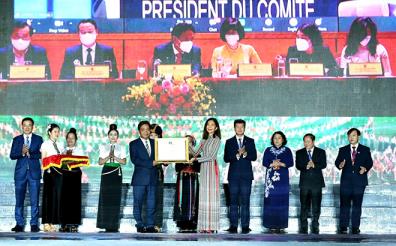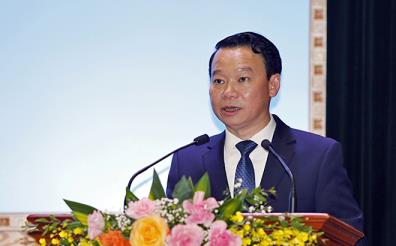OCOP: Elevating Yen Bai’s Agricultural Products
- Monday, February 17, 2025
Each OCOP product is not just a commodity but a symbol of the land and its people, carrying stories of cultural identity, creativity, and aspirations for growth. In Yen Bai, the “One Commune, One Product” (OCOP) program has been a significant driver in establishing local agricultural brands, enhancing value, and conquering both domestic and international markets.

|
|
The Director of the Mu Cang Chai Agricultural Construction and Services Cooperative introduces their natural flower honey product.
|
Other news

As of now, Yen Bai Province has a total of 273 OCOP (One Commune One Product) items certified, including 25 products rated 4 stars and 248 rated 3 stars.

Since the beginning of the year, Van Yen District has recorded 90 individuals participating in overseas labor programs. Among them, 45 workers were sent to Japan, 7 to South Korea, 36 to Taiwan, and 2 to Qatar. This makes Van Yen the locality with the highest number of overseas laborers in the province as of early 2025.

Since the beginning of 2025, the implementation of a range of coordinated measures has enabled Yen Bai Province to achieve positive outcomes in the disbursement of public investment capital. Notably, the province ranks among the 35 provinces and cities with disbursement rates higher than the national average.

Over the five-year period from 2021 to 2025, Yen Bai Province has created jobs for 110,339 workers. Of these: 56,393 were employed through socio-economic development programs, 11,907 accessed loans from the National Employment Fund, 2,886 worked abroad under labor export programs, and 39,153 were supplied to out-of-province employers.











